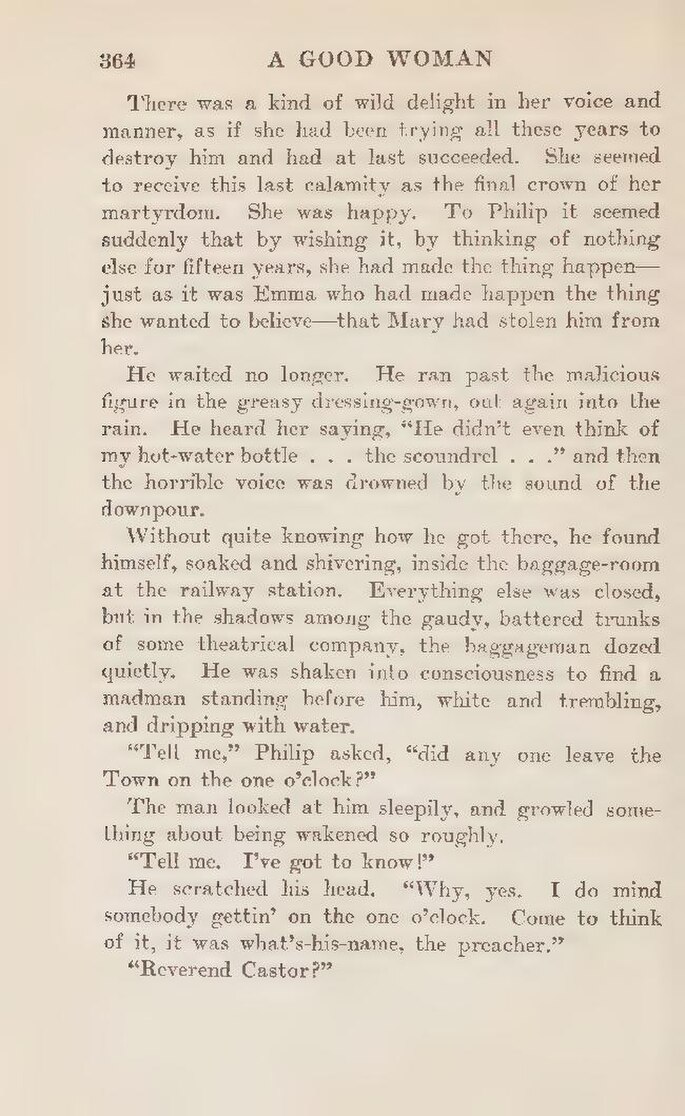There was a kind of wild delight in her voice and manner, as if she had been trying all these years to destroy him and had at last succeeded. She seemed to receive this last calamity as the final crown of her martyrdom. She was happy. To Philip it seemed suddenly that by wishing it, by thinking of nothing else for fifteen years, she had made the thing happen—just as it was Emma who had made happen the thing she wanted to believe—that Mary had stolen him from her.
He waited no longer. He ran past the malicious figure in the greasy dressing-gown, out again into the rain. He heard her saying, "He didn't even think of my hot-water bottle . . . the scoundrel . . ." and then the horrible voice was drowned by the sound of the downpour.
Without quite knowing how he got there, he found himself, soaked and shivering, inside the baggage-room at the railway station. Everything else was closed, but in the shadows among the gaudy, battered trunks of some theatrical company, the baggageman dozed quietly. He was shaken into consciousness to find a madman standing before him, white and trembling, and dripping with water.
"Tell me," Philip asked, "did any one leave the Town on the one o'clock?"
The man looked at him sleepily, and growled something about being wakened so roughly.
"Tell me. I've got to know!"
He scratched his head. "Why, yes. I do mind somebody gettin' on the one o'clock. Come to think of it, it was what's-his-name, the preacher."
"Reverend Castor?"
